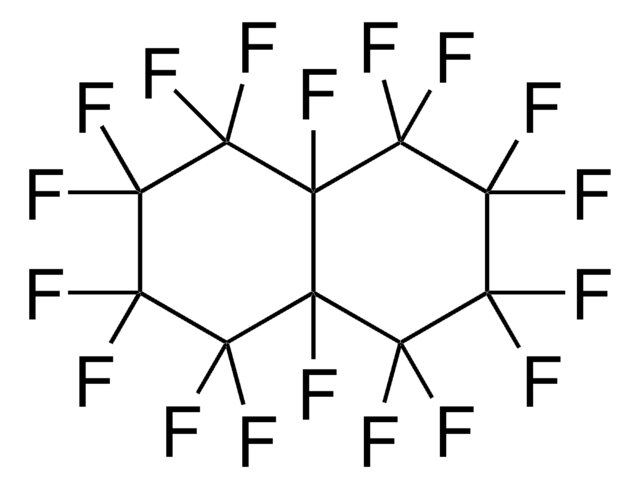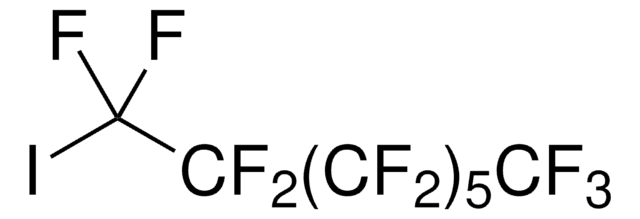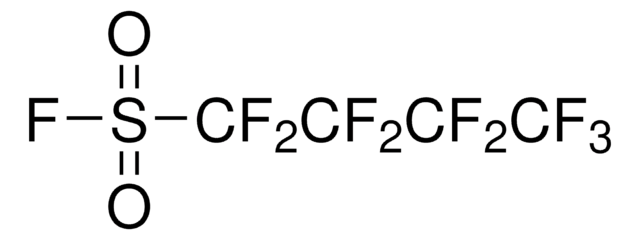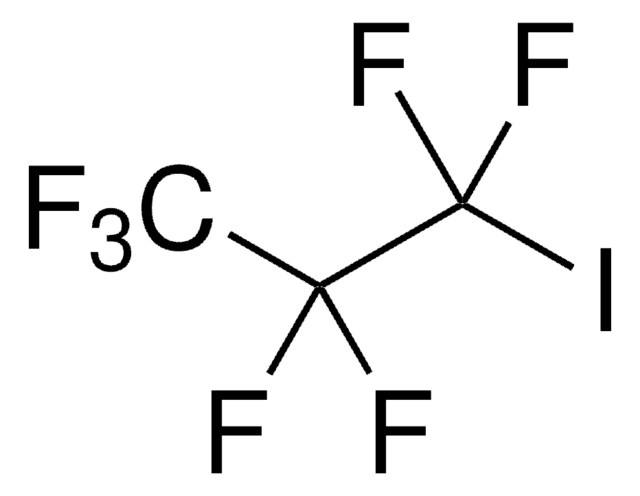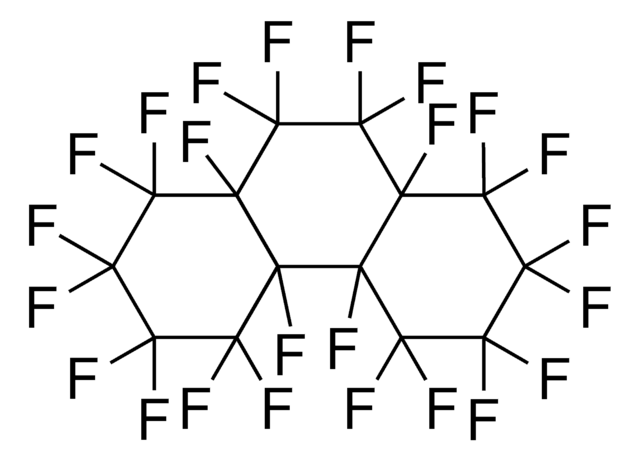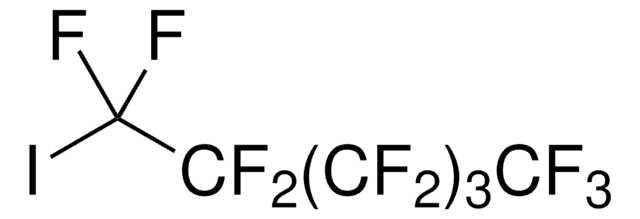343862
1-Bromoheptadecafluorooctane
99%
Synonym(s):
Heptadecafluorooctyl bromide, Perfluorooctyl bromide
About This Item
Recommended Products
Quality Level
Assay
99%
form
liquid
refractive index
n20/D 1.305 (lit.)
bp
142 °C (lit.)
density
1.93 g/mL at 25 °C (lit.)
functional group
bromo
fluoro
SMILES string
FC(F)(F)C(F)(F)C(F)(F)C(F)(F)C(F)(F)C(F)(F)C(F)(F)C(F)(F)Br
InChI
1S/C8BrF17/c9-7(22,23)5(18,19)3(14,15)1(10,11)2(12,13)4(16,17)6(20,21)8(24,25)26
InChI key
WTWWXOGTJWMJHI-UHFFFAOYSA-N
Looking for similar products? Visit Product Comparison Guide
General description
Application
Signal Word
Warning
Hazard Statements
Precautionary Statements
Hazard Classifications
Eye Irrit. 2 - Skin Irrit. 2 - STOT SE 3
Target Organs
Respiratory system
Storage Class Code
10 - Combustible liquids
WGK
WGK 3
Flash Point(F)
Not applicable
Flash Point(C)
Not applicable
Personal Protective Equipment
Choose from one of the most recent versions:
Already Own This Product?
Find documentation for the products that you have recently purchased in the Document Library.
Customers Also Viewed
Our team of scientists has experience in all areas of research including Life Science, Material Science, Chemical Synthesis, Chromatography, Analytical and many others.
Contact Technical Service